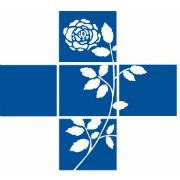Related Jobs

AltaMed
•
Full-time
•
El Monte, California 91731, United States
•
$95,680 - $114,400 / year
•
1w ago
Grow Healthy If you are as passionate about helping those in need as you are about growing your career, consider AltaMed. At AltaMed, your passion for helping others isn’t just welcomed – it’s nurtured, celebrated, a...

AltaMed
•
Full-time
•
Commerce, California 90040, United States
•
$118,898.86 - $148,623.58 / year
•
1w ago
Grow Healthy If you are as passionate about helping those in need as you are about growing your career, consider AltaMed. At AltaMed, your passion for helping others isn’t just welcomed – it’s nurtured, celebrated, a...

American Traveler is offering a rewarding Labor & Delivery Registered Nurse (RN) contract position in Fullerton California. Shift: Nights 12 Job Length: 13 weeks -- RNs who work with us receive a highly competiti...

We are seeking a highly skilled and compassionate Registered Nurse (RN) to join our team at a Skilled Nursing Facility. As an RN, you will be responsible for ensuring that residents' needs are met in accordance with pr...

JOIN OUR LINKS STAFFING TEAM!!! LOCAL AND TRAVEL CONTRACTS AVAILABLE
Responsibilities of the Registered Nurse include but are not limited to:
Ensures proper resident care is maintained in a clean and safe env...

Starting Pay Rate: $55 - $65 / hour
At DRIFT , we work with healthcare companies across the United States to help recruit for frontline staff positions. By applying with us, you'll work with one of our Recruitment...

Overview
JOB SUMMARY: Responsible for the delivery of patient care through the nursing process of assessment, diagnosing, planning, implementation and evaluation. Responsible for directing and coordinating all nu...

Overview
Monterey Park Hospital, located in the San Gabriel Valley of Los Angeles County, is searching for a Registered Nurse for our Emergency Department . This is a full time, night shift position. Monterey Park Ho...

Current Emanate Health Employees - Please log into your Workday account to apply Everyone at Emanate Health plays a vital role in the care we deliver. No matter what department you belong to, the work you do at Emana...

JOIN OUR FULLSHIFT STAFFING TEAM!
Facility Information:
Our facilities are Intermediate Care Facilities for individuals with disabilities (ICF/DD-H and ICF/DD-N)
Caregiver (DSP) to people supported ratio is...